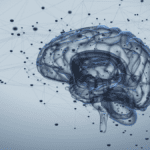Transcranial magnetic stimulation (TMS) is a non-invasive brain stimulation procedure that helps alleviate depressive symptoms. Patients typically seek TMS after an inadequate response to standard medical treatments for depression like psychotherapy and antidepressant medications. Studies indicate that when patients are treated with TMS they do not show a uniform pattern of response.
Various factors influence the outcome of depression treated with TMS. At Mid City TMS–because we have vast experience, knowledge and expertise–we can fully use our understanding of the the predictors of response to TMS treatment in depression to guide appropriate selection of patients for TMS treatment as well as optimize the TMS technique and protocol to have superb clinical outcomes.
With the growing popularity of transcranial magnetic stimulation (TMS) as a depression treatment procedure, clinicians have some ability to predict the likelihood of a patient’s TMS response based on several factors. Predictive factors of a positive TMS response include temperament, treatment refractoriness, severity of depressive episodes, and procedural target measures.
Predictive Factors of a Positive TMS Response Rate
Temperament and Character
The Temperament and Character Inventory (TCI) is a set of tests used to identify the relationships between and the intensity of seven basic personality dimensions of Temperament and Character—harm avoidance, novelty seeking, reward dependence, persistence, self-directedness, self-transcendence, and cooperativeness.
In a 2016 research study, positive TMS response rates in individuals were significantly higher in patients who had higher scores in persistence, which is defined as the tendency to perseverance despite frustration and fatigue and is characterized by making demands upon self, hard-working, and striving for excellence. This result may be explained by TMS-induced enhancement of cortical excitability, which has been found to be decreased in patients with high persistence. Personality assessments that include the measurement of TCI persistence may be helpful to determine the likelihood of TMS treatments being effective.
Treatment Refractoriness
When a patient is refractory to a medication or treatment, it means they are resistant to their beneficial effects. One 2006 study showed patients who are more refractory to antidepressants may also be more resistant to the antidepressant effects of TMS treatment. This study was limited by the fact that TMS sessions were done only for two weeks rather than the usual 6-8 weeks that we typically do now. The possible smaller effect of TMS in refractory patients might indicate that the TMS course for these patients needs to be prolonged, which is what we commonly do for the patients we treat at Mid City TMS to enhance their response.
Severity of Depressive Episodes
In one 2015 study, patients with mild to moderate depressive episodes tended to have a better TMS response rate than those with severe depressive episodes. In a 2016 study, shorter duration of a depressive episode, a less severe depression at baseline, and recurrent depressive episodes predicted a greater likelihood of positive TMS response rate to TMS treatment. Most importantly, although response can vary depending on these various clinical variables, none of these variables exert a sufficiently strong influence on response rates to warrant using these criteria to exclude patients from treatment with TMS.
Prior Response to TMS
Multiple studies and our own experience at Mid City TMS demonstrate that patients with depression who have had a good response to TMS in their previous depressive episode, also are much more likely to respond to TMS in their subsequent depressive episodes. Therefore, earlier good response to TMS can be considered a predictor of response to TMS in depression
Procedural Target Measures
When treating depression, the desired placement of the TMS coil is usually the left dorsalateral prefrontal cortex (DLPFC). How accurately the DLPFC is located affects the response rates of TMS. The DLPC location in patients varies due to the patient’s skull and brain size. At Mid City TMS, to properly locate the DLPFC, we use the Beam F3, which takes into account the patient’s head size and has been demonstrated to be accurate, reliable and efficient.
Let Us Evaluate Your TMS Response Rate at Mid City TMS
Our team of experts at Mid City TMS is knowledgeable of the predictive factors that can influence a patient’s positive TMS response rate. With our vast amount of experience treating hundreds of patients with TMS, we can help you achieve relief from your depressive symptoms by evaluating your personal characteristics and the quantitative procedural measures of the TMS treatment.
To learn more about TMS, check out our blog on How to Use Magnets for Depression: Transcranial Magnetic Stimulation or contact us today to speak with one of our experts!



